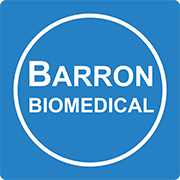Goals
Personalized medicine is understood as the medical treatment tailored to each individual patient. This particulary appertains to the ability to identify before the onset of the therapy the most suitable drugs and therapeutic interventions for any single patient, and this regardless of whether they are established or recently approved.
This ability can be acquired using Targeted Therapies and Predictive Biomarkers.
Targeted Therapies: A targeted cancer therapy is based on a drug that inhibits the growth and spread of cancer cells by interfering with a specific target molecule. The target is predominantly present in the cancer cells and is involved in tumor growth and progression (for example the EGFR protein). Since the drug attacks specifically the cancer cells, it is less harmful to the normal cells of the body: this reduces the adverse drug reactions, which are usual for chemotherapies.
Predictive Biomarkers: A predictive biomarker, also called a biomarker for therapy response, is a measurable biological feature that acts as an indicator for response to a treatment. The substitution of a nucleotide as well as the deletion or insertion of one or more nucleotides, are variants of the DNA sequence that can function as predictive biomarkers for a given drug. Typically such a variant alters the gene encoding the drug target (for example the EGFR gene) or another gene involved in the mechanism affected by the drug (for example the RAS gene) or in the drug metabolism (for example the DPYD gene).


Companion Diagnostics
A patient is eligible for a targeted therapy only if the target was previously demonstrated in the cancer cells. The pathologist provides the evidence by a clinically validated test for the target, called a "companion diagnostic", which is critical to the therapy decision with the targeted drug.

Clinical Validation of Predicitive Biomarkers
The prerequisite to use a sequence variant as predictive biomarker for a given drug is that the correlation between the variant and the drug responders has been statistically demonstrated in a patient collective treated with the drug.
